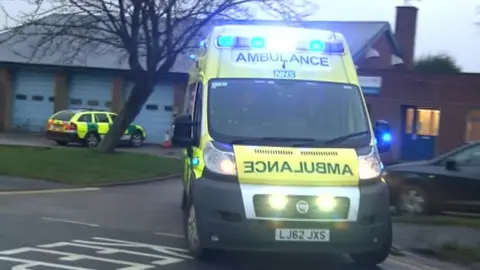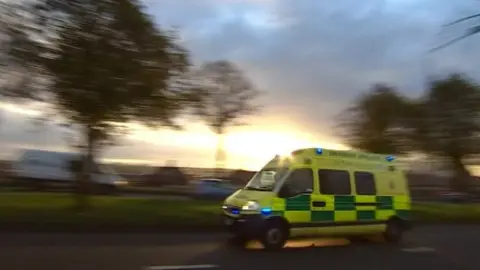East Midlands Ambulance Service report sees improvement
 BBC
BBCA troubled ambulance trust has seen some "significant" improvements but still faces challenges, a new report has found.
The Care Quality Commission said East Midlands Ambulance Service's emergency and urgent care services were no longer rated as inadequate for safety.
But it confirmed continuing problems with response times and incident investigation.
Overall, the trust continues to be rated as requires improvement.
East Midlands Ambulance Service (EMAS), which serves about 4.8 million people across six counties, has faced financial problems and had some of the worst response times in England.

After an inspection in November 2015, the trust was served with a warning notice to ensure there were enough staff and vehicles available.
The new report notes some issues had been addressed.
CQC's Chief Inspector of Hospitals, Professor Sir Mike Richards, said: "Our inspectors found significant improvements had been made, and there were a number of areas of outstanding practice, but we still had some concerns.
"Staff were caring, professional, compassionate and patient-focussed in challenging circumstances.
"However, we were concerned that response times for some identified calls fell short of the national target, which meant patients were not receiving care as quickly as they should."
Areas of outstanding work included a "highly effective" recruitment campaign.
Richard Henderson, chief executive of EMAS, said: "Last year we had 20,000 occasions where it took us over one hour to hand patients over to hospitals.
"Clearly, that has a massive impact on the time it takes to get to patients, but by addressing that and wider system challenges we can clearly improve further."
The service, which covers Derbyshire, Leicestershire, Lincolnshire, Northamptonshire, Nottinghamshire and Rutland, has about 2,700 members of staff and receives approximately 2,000 calls a day.
